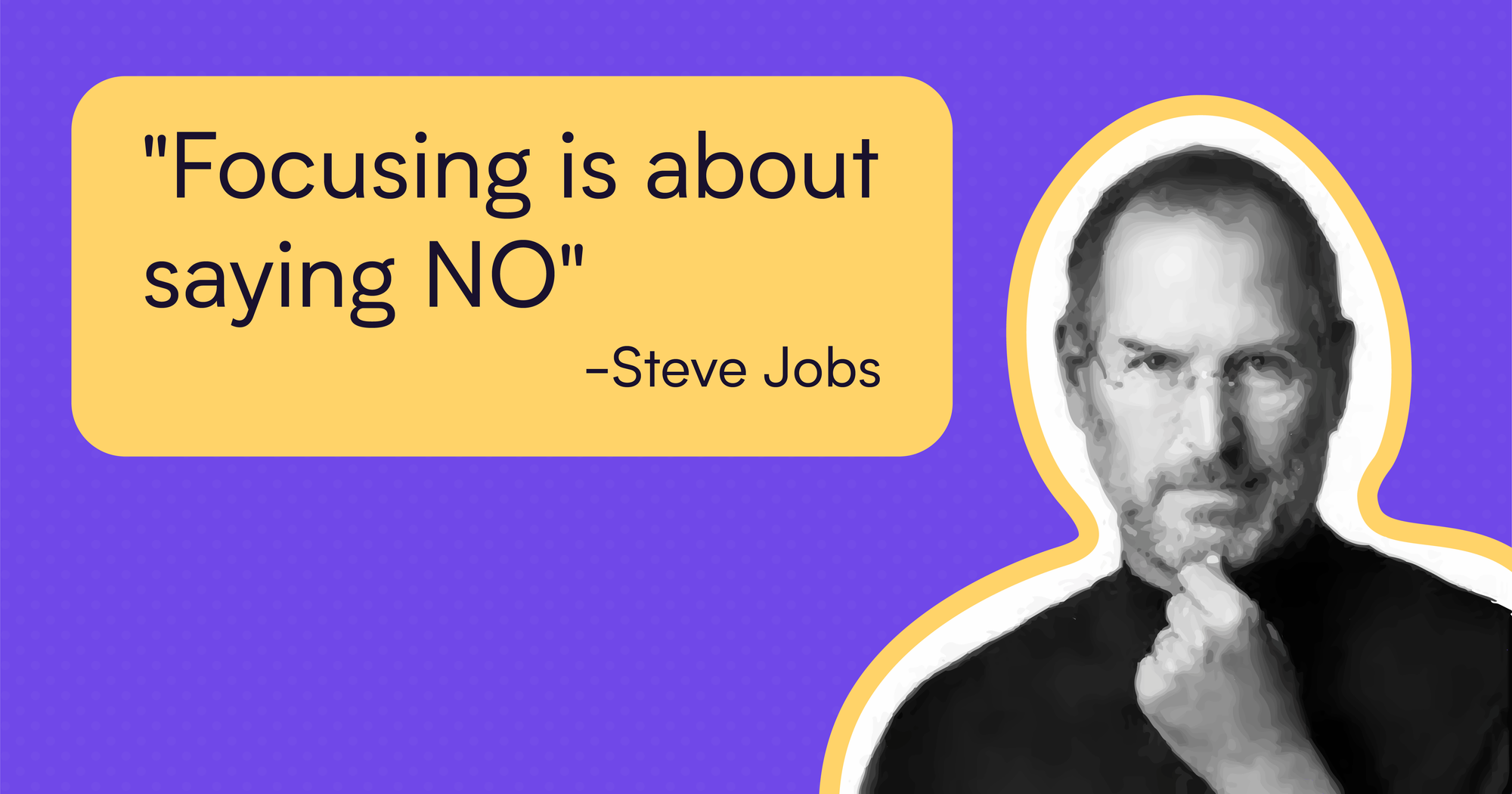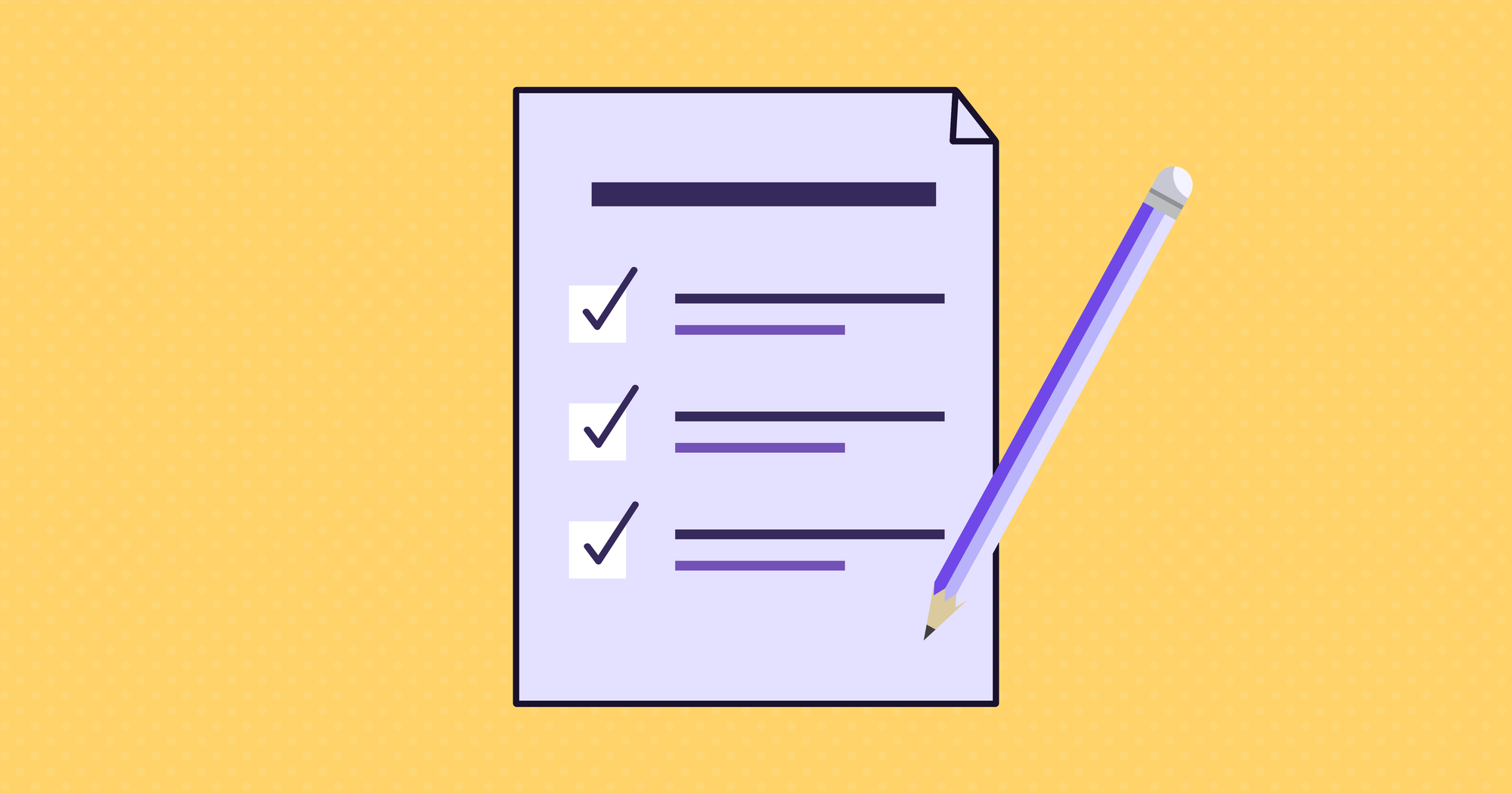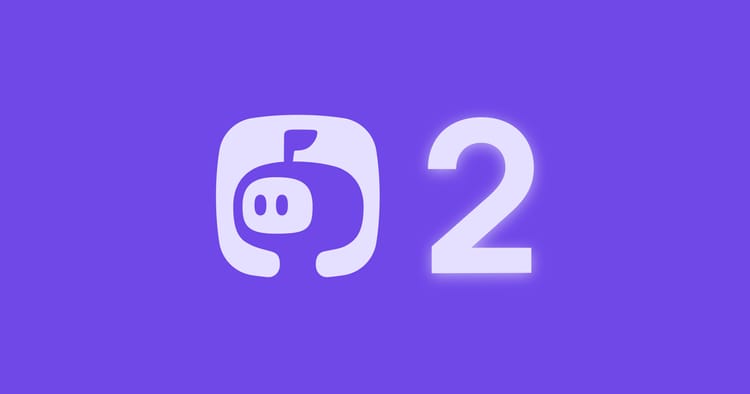10 productivity tips from successful people (Elon Musk, Jeff Bezos, Steve Jobs, and more....)


Successful people practice unique habits to be great at what they do. It helps them to get more done in less time, enjoy a work-life balance, and improve their work craft. Wouldn’t it be awesome to know what those productive hacks are, so you too could enjoy the same benefits?
Keep reading…
10 productivity tips from Elon Musk, Maya Angelou, Steve Jobs, and others
1. Work on things you like
Sam Altman, the founder of Open AI, writes, “It doesn’t matter how fast you work if it’s in a worthless direction.” No productivity hacks and tools will work if you work on something you dislike.
If you’re feeling lazy, oftentimes, it’s a signal that you aren’t enjoying your work. Don’t ignore it.
He further adds, “Picking the right thing to work on is the most important element of productivity and usually almost ignored. So think about it more!” This is the greatest productivity hack you can apply.
Pick the right career/task. How? “Read books, hang out with interesting people, and spend time in nature.” Observe yourself. See what motivates you. What you’re drawn to. Embrace it.
Minimize dealing with work you dislike. But, there are certain tasks that even if you dislike, you’ve to do them. Delegate or automate those work.
2. Learn to focus by saying no
The difference between mediocrity and greatness is eliminating a hundred good opportunities to focus on 2-3 important tasks. You have to say “No” to good things to do great things.
Steve Jobs, the founder of Apple & Pixar, is an ardent fan of this. He says, “People think focus means saying yes to the thing you’ve got to focus on. But that’s not what it means at all. It means saying no to the hundred other good ideas that there are. You have to pick carefully. I’m actually as proud of the things we haven’t done as the things I have done. Innovation is saying ‘no’ to 1,000 things.”
Listen to Jobs. Note down your long-term goals. Say “yes,” to only those opportunities that steer you toward the goal. Say “no,” to every other task/opportunity, however good. As Derek Sivers says, “If you aren’t feeling a ‘Hell Yeah!’ then say no.”
Many resist saying “no,” to people, fearing what the other person might think. But, your time is limited. If you keep on saying “yes,” to please people, you’ll miss out on doing things you like - interesting projects, spending time with family - and stall your progress.
Plus, a half-hearted “no” will reflect on the work you’ll do for others. So either way, you’ll displease them. But, if you do say “no” correctly, the other person will respect that you saved both of your time.

Here’s how to:
a) Don’t give an impulse answer. If someone asks you to do something, think if you can postpone the current thing you’re doing without any mental stress. If not, the answer is “no.”
b) Once you’ve decided, don’t delay your response. Don’t keep the other person waiting. Go on and say “no.” Explain the trade-offs and your priority. Limit it to 2-3 sentences. You don’t have to explain everything about your decision.
c) Be both nice and straightforward. Don’t make your “no” sound harsh. Make sure your body language isn’t negative. But, at the same time, avoid being nice. Don’t soften your response just to appear good. This gives false hope to the person that you’ll say “yes” if they persist.
d) Prepare yourself for a negative response. People don’t like rejection. They can act out of proportion. But, don’t let this provoke you.
3. Have a separate work environment
The Pulitzer prize winner Maya Angelou advocated separating work and home environments. Every morning, she rented a small hotel room, to do her writing. Angelou got rid of all the distractions in the room. She only had a Bible, a deck of cards, and a bottle of sherry to let her focus.
It makes sense.
Your environment triggers your reaction. A couch can trigger laziness. Video games can instill competitiveness. And a packet of snacks can distract you from your work at hand. Plus, working from home means constant distraction of family members and road noise.
So fix a working environment away from your bedroom. Choose a place that is quiet, has natural sunlight, and your family members don’t bother you now and then. If you don’t have enough space for a home office, create a mobile office that you set up and tear down daily. Or work out of a café. Or a co-working space. Or rent a room with your remote colleagues.
Like Angelou, have only the bare minimum that is essential for your work. That may be a laptop, headphones, and a working table. Get rid of everything else - snacks, couch, and anything that distracts you. Plus, surround your room with positive cues - plants, books, or nothing (if you prefer that).
4. Don’t keep a schedule
“Are you crazy?” I can hear you say. But, that’s what Marc Andreessen, founder of Andreessen Horowitz & Netscape, recommends.
“By not keeping a schedule, I mean: refuse to meetings, appointments, or activities at any set time on any future day. As a result, you can work on whatever is most important or interesting, at any time.”
He acknowledges that not everyone can afford this. “If you have a structured job, a structured job environment, or you’re a CEO, it will be hard to pull off. But, if you can do it, it’s really liberating and will lead to far higher productivity than almost any other tactic you try.”
The idea of this tip is to own your schedule. Block unnecessary meetings and ‘small talks.’ Avoid uninteresting and energy-draining activities. So you work on what pleases you.
“Want to spend all day coding? Do it!
Want to spend all day at the café down the street reading a book? Do it!”
Want to just relax and spend your time with family and friends? Do it!
By not keeping a schedule, you’ll achieve everything that you want to. Plus, enjoying doing it. If you can’t pull this off - not everyone can - here are other tips from Marc:
a) Keep three lists.

- Todo list: Write down “the stuff you ‘must do’ - commitments, obligations, things that have to be done. Categorize those tasks by timeframe (today, this week, next week, next month.”
- Watch list: Note down the tasks you’ve to follow up on, that you need a reminder to do in the future.
- Later list: This “list contains everything else - everything you might want to do or will you do when you have time or wish you could do.”
Delete every task that doesn’t fit into any of these three lists.
b) Prepare a list of 3-5 tasks each night that you would do the next day. This will give order to your work and avoid chaos.
c) Do structured procrastination. “The gist of Structured Procrastination is that you should never fight the tendency to procrastinate—instead, you should use it to your advantage in order to get other things done.
Generally, in the course of a day, there is something you have to do that you are not doing because you are procrastinating.
While you’re procrastinating, just do lots of other stuff instead.”
Example: Note down the small tasks (like sending an email, checking on someone) one day before. These are tasks that don’t require mental load. And whenever you’re procrastinating, do these small tasks. You’ll be surprised how much you can get done.
5. Cut off meetings
Naval Ravikant, the founder of AngelList, says, “meetings are the death of productivity.” I agree. It breaks the workflow and doesn’t allow deep work.
Meetings symbolize bad management. Excessive meetings drain everyone’s energy and motivation. Plus, 80% of the meetings can be an email or text.
This isn’t to say some meetings aren’t important. They are. But, you should have a strict criterion. Here’s a decision tree to help you to decide whether a meeting is needed or not.
Unfortunately, even the important meetings are mismanaged.
Here’s how I prefer meetings:
a) Update the employee/team about the meeting 3-4 days in advance. Let them know why. Avoid random meetings.
b) If it’s a team meeting, ensure everyone writes their ideas on the topic. So, time isn’t wasted on what to talk about.
c) Record the meeting. So, participants can access it anytime to recall important points. And, don't bother anyone else.
Here’s what Naval prefers:
- No meetings before 11 am.
- No meetings when emails or calls will do.
- Don’t schedule calls, text coordinate them on the fly when possible.
- Cram all meetings into two days a week.
- 1-on-1s are usually 30-minute walking meetings.
6. Make quick decisions
Jeff Bezos recommends making high-quality, high-velocity decisions.
Here’s what that means:
a) Use the rule of 70%.
Make decisions with 70% of the information you have. If you’re waiting for 90% of the information, you’re being slow. Plus, if you’re good at course correcting (which you should be), being wrong may be less costly than being slow.
b) Follow “disagree and commit”
Not everyone will agree with you every time. That shouldn’t let you give up on your conviction. If you’ve a strong conviction without consensus, it’s helpful to say, “Look, I know we disagree on this, but will you gamble with me on it? Disagree and commit?” No one can answer this for sure, and you’ll probably get a quick yes.
c) Address the misalignment issues early
“Sometimes teams have different objectives and fundamentally different views,” Jeff Bezos writes. “They are not aligned. No amount of discussion, no number of meetings will resolve that deep misalignment. Without escalation, the default dispute resolution mechanism for this scenario is exhaustion.”
7. Listen to negative feedback
Elon Musk, the founder of Tesla, SpaceX, and Neuralink, advises seeking negative feedback. “Pay attention to negative feedback, and solicit it, particularly from friends.”
The worst thing you can do is ignore negative feedback. “Rather than ignoring negative feedback, you have to listen to it carefully. Ignore it if the underlying reason for the negative feedback doesn't make sense, but otherwise, people should adjust their behavior.” Defeat your ego to listen to potential improvements.

Ask your friend or colleague to critic your opinions/decisions. Let them tell you what you did wrong and how you can do it better next time. Initially, it will hurt, but you’ll think, and operate 10X better in the long-term.
8. You won’t get done everything and that’s OK
How much ever productive you want to be, you’ll miss 2 or 3 small tasks. Don’t fret over it. Arianna Huffington, co-founder of Huffington Post & Thrive Global, said it best. "My most important tip about getting it all done is you are not going to. If you think you're going to get it all done, give it up.”
"There is no day which does not have a large number of incompletions, for me and for anybody who is doing an interesting job. So, the key is, have you done the most important things? So, I like to start my day with three things that must get done that day, and everything else is gravy. If I get those three most important things done, then I'm not worried about all the things I didn't get done.”
Plan your 3-4 important tasks one day in advance. Start your next day by prioritizing the most important tasks. Focus on completing those 3 to 4 tasks in the best way possible. You’ll be good to go.
9. Take rest
Productivity requires both work and rest. If you squeeze every minute of your day to work 24/7, you will feel exhausted and mentally tired. Plus, your work will be mediocre. Instead, work like a lion - sprint, rest, and repeat.
Nobody knew this better than John. D. Rockefeller. In spite of his busy schedule, he carved free time to rest. He made it a habit to take breaks for a nap or to play golf. This helped him reenergize and be 100% ready for his scheduled work.
Rest doesn’t mean you sit idle, although you can do that, too. But, you can even read books, practice your hobby, or just relax. The goal is to calm your mind and enjoy mental peace.

A fresh mind is more likely to be creative and productive. So make your rest non-negotiable. Remember, it’s a part of your productivity plan, not a separate task.
10. Record your daily progress: succeed and mistakes
The American Founding Father Benjamin Franklin swore by this productivity trick. Every evening, he asked himself, “What good have I done today?”
This helped him track his time. It let Benjamin Franklin know what he was succeeding at. And what still needed improvement. He implemented the changes and increased his work efficiency every day.
Follow this practice. Analyze your daily schedule at the end of the day. See what you achieved and what you failed at. Double down on what’s working. Cut down on things that are halting your progress.
Integrate these productivity tips into your daily life
Successful people aren’t successful because of luck. They build a system of habits and are consistent at it. That’s what you should do. Start with these 10 tips to get more done in less time. See what works for you. Stick with the one that does.





